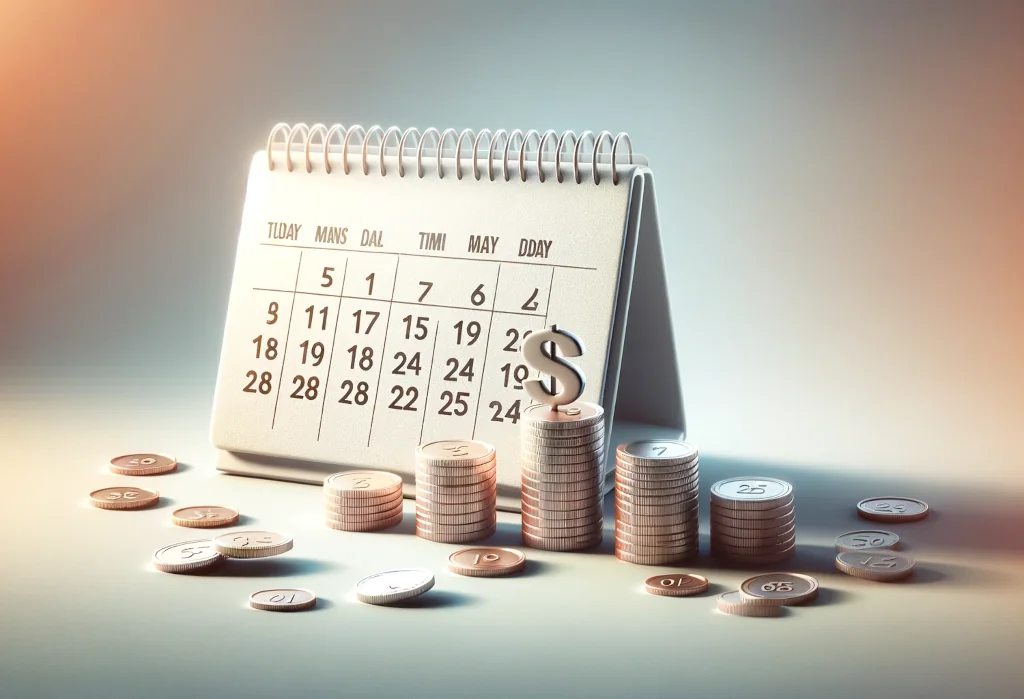
Let’s face it – watching your bank account drain faster than a bathtub with a giant plug hole is no one’s idea of a good time. Yet, here we are, wallets trembling at the thought of tomorrow’s expenses. In the spirit of keeping our finances afloat and our spirits high, this guide promises to be your financial lifebuoy, showing you how to effortlessly save money every day without having to live like a hermit. Because let’s be honest, what’s the fun in that?
This blog post will hand you the keys to unlocking everyday savings, making your wallet breathe a sigh of relief.
Quick Takeaways:
- Renegotiate your internet and phone plans to match or beat competitor rates.
- Plan meals and cook at home to cut down on eating out expenses.
- Use public transportation or carpool to significantly reduce daily commute costs.
Disclaimer: Information on this blog is for general educational purposes only and does not constitute personalized financial advice. Always consult a qualified financial advisor before making any financial choices.
What Can You Do to Cut Down on Monthly Bills?
Let’s get real, folks. Keeping your monthly bills lean isn’t just about scrimping and saving; it’s about smart strategies that give you a bigger bang for your buck.
Renegotiating Your Internet and Phone Plans – It’s almost embarrassing how many of us set and forget our internet and phone plans. Providers often reserve sweet deals for new customers, but what if I told you that a simple call could land you those deals, too? Don’t be shy; get on the phone and negotiate. Mention competitor rates, talk about how long you’ve been a loyal customer, and don’t settle until you hear a number that makes your wallet happy.
Slimming Down on Subscription Services – Raise your hand if you’ve ever signed up for a free trial and then completely forgotten about it. Subscriptions can be sneaky money drains. Take an afternoon to comb through your bank statements for any you rarely use. That premium movie channel you thought you couldn’t live without? It might be time to say goodbye if it’s just collecting digital dust.
Reducing Utility Bills – Simple changes can lead to significant savings. Consider switching to energy-efficient LED bulbs, installing low-flow showerheads, or even unplugging electronics when they’re not in use. According to the U.S. Department of Energy, making these small changes could save you upwards of 25% on your utility bills.
Is Eating Out Draining Your Wallet?
Now, onto the foodies out there. Eating out can be a delightful experience, but it can also be quite costly. Here’s how you can become a savvy, budget-friendly chef at home.
Embrace Meal Planning – Planning your meals ahead of time isn’t just good for your wallet; it’s good for your soul. You’ll waste less food and avoid the dreaded question, “What’s for dinner?” Plus, cooking at home means you can make healthier choices. For starters, try recipes that use overlapping ingredients to maximize your grocery haul. Websites like Budget Bytes offer easy, delicious recipes that won’t break the bank.
Eating on a Budget Doesn’t Mean Eating Poorly – Believe it or not, eating well doesn’t have to be expensive. Focus on recipes that are not only budget-friendly but nutritionally rich. Think beans, rice, seasonal veggies, and bulk purchases when appropriate. And remember, spices are your best friends; they’re the difference between a bland meal and a flavorful feast.
How Can You Smartly Manage Daily Transportation Costs?
Transport expenses can quickly add up, but with a bit of planning, you can significantly reduce them.
Public Transportation Over Private Vehicles – If you’re living in an urban area, public transit can be both a cost-effective and eco-friendly option. Calculate the cost of a monthly transit pass versus the costs associated with driving (fuel, maintenance, parking, etc.) – you might be surprised by the savings.
Carpooling is Your Friend – Platforms like Waze Carpool connect riders and drivers heading in the same direction. It’s a win-win; you save money and reduce your carbon footprint.
Biking – Not Just for Exercise – When possible, consider biking. It eliminates fuel costs, parking fees, and, best yet, it’s great for your health. For those living further out, look into combining biking with public transportation. Many transit systems are bike-friendly, allowing you to cover greater distances efficiently.
Cost-Per-Use Calculation for Vehicles – This unique tip might just change how you view your vehicle expenses. Calculate the cost-per-use of your car by dividing your monthly car-related expenses by the number of times you use it per month. This can illuminate whether it’s more cost-effective to switch to an alternative mode of transportation or to continue using a personal vehicle.
Remember, tackling daily expenses doesn’t mean overhauling your entire lifestyle overnight. Small, consistent changes can lead to significant savings over time. And who doesn’t love having a little extra in their pocket at the end of the month? Keep on reading for more tips on how to keep your financial health in tip-top shape.
Are There Simple Hacks for Reducing Daily Expenses?
Absolutely! In the maze of daily expenses, it’s easy to feel like you’re constantly trying to catch up. However, with a few clever tricks up your sleeve, you can turn the tables and start saving money with minimal effort. Here are a few life hacks that can make a significant difference:
-
Cash-Back and Rewards Apps : Make your smartphone a money-saving machine by downloading apps like Rakuten or Ibotta. These apps offer cash back for purchasing specific items or shopping at certain stores. Over time, these rewards add up to substantial savings. Imagine getting back a percentage of your grocery bill just because you snapped a photo of your receipt!
-
Buying in Bulk : This oldie but goldie strategy never fails, especially for non-perishable items or products you use regularly. Stores like Costco or Sam’s Club are gold mines for bulk purchases. However, be wary of buying perishables in bulk unless you’re sure you can consume them before they spoil.
-
Avoiding Impulsive Purchases : Easier said than done, right? But with a simple “24-hour rule,” you can curb impulsive buying. If you see something you want (but don’t necessarily need), wait 24 hours before purchasing it. Often, the urge to buy fades away, saving you from unnecessary expenses.
-
Using Digital Tools for Tracking Spending : Apps like Mint or YNAB (You Need A Budget) can be game-changers in managing your finances. They allow you to track your spending in real time, categorize your expenses, and set budgeting goals. It’s like having a personal finance advisor in your pocket, guiding you towards smarter spending decisions.
How Can Mindful Shopping Save You Money?
In the age of instant gratification, mindful shopping sounds like a buzzkill. But hear me out, because embracing this approach can lead to significant savings and a healthier relationship with your finances. Here’s how:
Differentiating Between Needs and Wants
This is the cornerstone of mindful shopping. Needs are essentials for survival and well-being, like food and shelter. Wants, on the other hand, are things that can enhance our lives but aren’t strictly necessary. Before making a purchase, ask yourself: “Do I need this, or do I just want it?” Often, you’ll find that many purchases fall into the ‘want’ category, helping you cut unnecessary spending.
The Advantages of List-Based Shopping
Going shopping without a list is like navigating without a map—you’ll end up somewhere, but it might not be where you intended to go. Here’s why lists are powerful:
- They Keep You Focused: With a list in hand, you’re less likely to get distracted by items that aren’t on it.
- They Help You Plan: By planning your purchases in advance, you can budget accordingly and avoid last-minute, potentially more expensive, buys.
Strategies for Resisting Marketing Tactics
Marketing is everywhere, coaxing us to spend more. But you’re not defenseless. Here’s a unique strategy most blogs miss: The Power of Unsubscribing. Email inboxes and social media feeds are often cluttered with promotional messages and ads, creating constant temptation. By simply unsubscribing from marketing emails and unfollowing brands on social media, you reduce the triggers that lead to impulse buys. Plus, it’s a refreshing cleanse for your digital life.
Mindful shopping isn’t about deprivation—it’s about making informed, deliberate choices that align with your financial goals and values. It’s a practice, and like any other practice, it gets easier and more effective the more you do it. So, next time you’re about to make a purchase, take a moment to pause and reflect. Your bank account will thank you.
As a financial advisor, my goal is to guide you through the world of personal finance with clear, practical advice. With a dedication to clarity and your financial well-being, I’m here to provide insightful guidance and support as you build a foundation of wealth and security.



